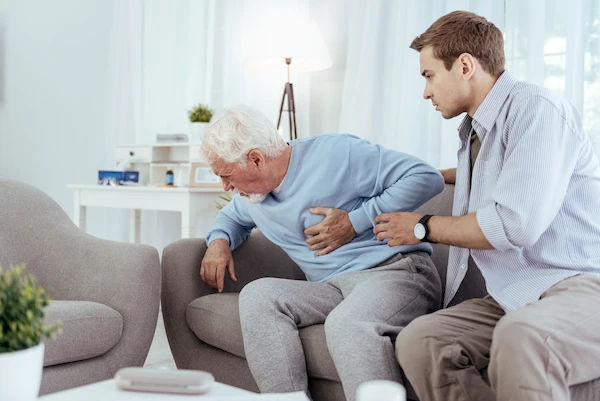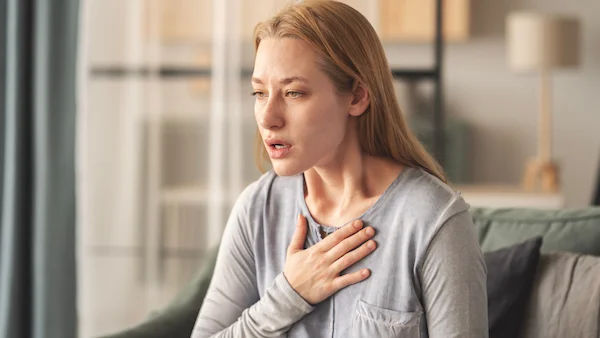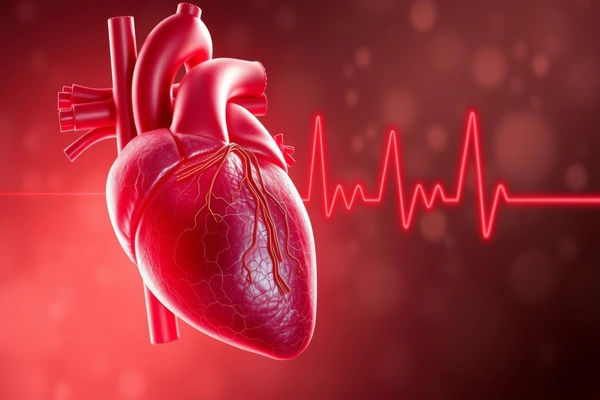- female
- 40 Years
- 22/01/2025
I'm a bit concerned about the results from my recent cardiac reports. Everything came back normal except the echocardiography, which indicated a mild mitral prolapse. Should I be worried about this?
Answered by 1 Apollo Doctors
Mild mitral valve prolapse is usually not a cause for concern and often does not require treatment. It is important to follow up with your doctor for regular check-ups to monitor your heart health. If you experience symptoms such as chest pain, palpitations, or shortness of breath, you should consult your doctor. No specific medication is required for mild mitral valve prolapse.
Dr. Chandra Suggests...
Consult a Cardiologist
Answered 25/07/2025
0
0

More Cardiology Health Queries
View allI'm experiencing these needle-like pains on the left side of my chest for just a split second. There's no sweating or weakness accompanying it. I've also noticed that when I take EVION LC or any vitamin E supplement, my vision gets a bit blurry. Is this something I should be concerned about?
The needle pain in your left side of the chest for a few seconds could be due to muscle spasms or nerve irritation. It is reassuring that you are not experiencing sweating or weakness along with it. However, the blurred vision you experience after taking EVION LC or any vitamin E supplement is concerning and should be addressed. I recommend stopping the use of EVION LC or any vitamin E supplement and consulting with your healthcare provider. They may suggest an alternative supplement or investigate further to determine the cause of your symptoms
Answered by 1 Apollo Doctors
I've been having these heart palpitations lately, and honestly, they really freak me out. I saw a doctor and felt better for a while, but it seems like they still happen about once a month. The last episode was pretty intenseI was just sleeping, and suddenly it felt like my heart was racing around 200 beats per minute, maybe even more. What could be causing this, and should I be worried?
Hlo Sriram, it sounds like you are experiencing episodes of tachycardia, where your heart beats very fast. This can be concerning and may require further evaluation. One possible medication that can be prescribed for such episodes is Metoprolol (brand name: Lopressor) at a starting dose of 25-50mg twice daily. However, it is important to consult with a healthcare professional for a proper diagnosis and treatment plan.
Answered by 1 Apollo Doctors
I'm 23 and every morning when I wake up, I feel this weird pain on the left side of my chest, right above my breast. It usually goes away after about 5 to 10 minutes. Should I be worried about this?
The intermittent morning chest pain on your left side, resolving within 5-10 minutes, could be related to musculoskeletal issues, such as costochondritis (inflammation of cartilage connecting ribs to breastbone) or pectoral muscle strain; however, given your age and symptom location, other possible causes, including cardiac conditions, gastroesophageal reflux disease (GERD), or anxiety, should be explored
Answered by 1 Apollo Doctors
Disclaimer: Answers on Apollo 247 are not intended to replace your doctor advice. Always seek help of a professional doctor in case of an medical emergency or ailment.

_2.webp)



